
Developer: Casus Ludi
Publisher: Gearbox
Platform: Switch, PC
Tested on: Switch
Blanc – Review
Gearbox is best known for releasing over-the-top action games like those set in the Borderlands universe or the most recent Duke Nukem games, so we certainly did a double-take when we saw their latest release, Blanc. Developed by Casus Ludi, Blanc is an indie puzzle title with a black-and-white hand-drawn art style, about two woodland animals trying to find their families. While it’s certainly a departure from what we’ve come to expect from Gearbox, we were more than eager to give Blanc a try, because it looks absolutely gorgeous, and we do consider ourselves to be puzzle game aficionados. Feel free to join us for a stroll in the snow-covered woods as we find out what Blanc has to offer.
Story
There is neither dialogue nor narration present in Blanc, but there doesn’t need to be. The premise is simple enough to understand, even without words. What you’re getting here is a masterfully executed and heartwarming tale about two unlikely friends that come together to overcome harsh conditions and be reunited with their families. Those friends are a fawn and a wolf cub, who have become separated from their respective groups after a massive blizzard has raged over the forest. Our protagonist pair now finds itself on opposite sides of a frozen river. Despite their inherent predator-prey relationship, they end up helping not just each other but also other woodland critters to survive the dangers of the snow-covered wilderness.
Graphics
The gorgeous hand-drawn black-and-white art is easily Blanc’s standout feature. In fact, the visuals are what drew us to the game in the first place. The minimalist art style works like a charm, with not a single line out of place. It was a bold decision to completely omit color too, but even with relatively simple line art and only black and white, Blanc manages to convey a world that is rich in detail. Whether it’s the idle animations of NPC animals or simply the way snow reacts to interactions from our protagonists, Blanc’s forest actually feels alive. What helps here is that there is no visible interface and that you only get on-screen prompts when absolutely necessary, further driving home a feeling of immersion, like you’re playing through an animated film rather than a video game.
Sound
While not as striking as the visuals, Blanc’s cinematic soundtrack is nonetheless an essential component for the game’s audiovisual impact. The game lacks any form of dialogue, with music used as a substitute way to convey specific emotions. We found ourselves even returning to Louis Godart’s understated soundtrack long after the game’s credits rolled. Naturally, there is no voice acting present here, and even the ambient soundscape is sparingly used, giving the tunes ample room to breathe and shine.
Gameplay
You might not expect it at first glance, but Blanc shares quite a lot of gameplay DNA with Bayonetta Origins, at least when it comes to its single-player gameplay. Just like in Cereza’s adventure, players take control of both protagonists simultaneously, with each character assigned to a separate Joy-Con. The aim is to navigate the wilderness, with the two woodland critters having to cooperate to overcome environmental puzzles. Unlike Bayonetta Origins, however, Blanc also offers a full-fledged co-op mode. The game is actually better when you play it with a friend, although in terms of puzzles the execution still leaves some things to be desired, no matter whether you tackle the game solo or together. Interestingly enough, despite Blanc being seemingly designed for couch co-op, it’s actually possible to play this one together online. Your in-game means of communication are limited, and both players need a copy of the game, so it’s perhaps not an ideal way to play, but at least the option exists, which is something we can only laud.
To Blanc’s credit, the game’s mechanics feel very accessible, so getting your non-gamer friends involved shouldn’t be too much of an issue. The general control scheme is simple, even when playing solo. Each character is individually moved with a joystick, with assigned buttons for jumping and interacting. The interaction button is context specific and the associated actions depend on the character. The wolf cub, for example, is able to bite objects in half, whereas the fawn can push things around, opening up new pathways. Just like the story, things are easy to understand here without an in-depth explanation. New mechanics are gradually introduced, with the game’s latter half introducing additional NPC animals that interact with the cub and the fawn based on their interactions with the environment. Some puzzles are built around these interactions, and they are some of the trickier ones as you need to guide these animals where they need to be, which can be very finicky.
That finickiness can be annoying but it isn’t game-breaking. Where Blanc misses the mark and becomes outright frustrating is with the in-game camera. As is typically the case with co-op games like this, the camera will zoom in or out depending on where the two characters are in relation to one another. That’s perfectly fine as is. However, for some strange reason, the camera is able to get “stuck” at strange and illogical angles, obscuring essential information necessary to progress further. We often found ourselves having to make our characters wander around randomly in order to “shake loose” the camera. It’s a needlessly frustrating implementation that could have been fixed by simply being able to return the camera to a default position at the push of a button. Of course, the “default” position depends on where the two individual characters are, so this probably wasn’t easy to implement, but we still would have liked to have seen things incorporated in a less frustrating manner.
Another area where Blanc unfortunately drops the ball is with its actual puzzles themselves. Apart from those aforementioned ones where you need to interact with NPC animals, what Blanc has to offer is very barebones in terms of challenge. Even with those NPC puzzles, the challenge lies in how much of a chore it is to complete them and not in having to use your brain to overcome what the game throws your way. We’re not quite sure whether this is because the game is aimed at a younger audience, but the puzzles are almost insultingly simple. They typically only present you with a single obstacle to overcome, rather than later puzzles combining different elements to ramp up the difficulty. In Blanc’s defense, if the game is indeed aimed at a very young crowd, which is something we’re not entirely sure about, then it’s a fantastic game for parents to play in co-op with their six-to-eight-year-olds. At least, it would be if the camera wasn’t so darn finicky.
In all honesty, we didn’t even realize how disappointed we were with Blanc’s gameplay until the credits rolled, and that had to do with how short the game was. We initially thought that the puzzles were so simple because the game was taking its time to build things up. Our expectation was that Blanc would gradually ramp up the difficulty but before we knew it, the credits rolled and the game was over. Playing through Blanc shouldn’t take you more than an hour and a half, so the €15 price point seems rather steep. This rings especially true since the game lacks any significant replay value. There are no secrets to discover or hidden areas to explore. Blanc is a linear experience, which would be fine if it wasn’t so damn short. The game absolutely nails its presentation, but in terms of gameplay, it underwhelms to the point that we’re convinced that this would have worked better as an animated film rather than a video game.
Conclusion
In terms of audiovisual presentation, Blanc is pretty much perfect, with beautiful visuals that are complemented by a fantastically subtle soundtrack. We’d go as far as to recommend the game purely on how it looks and sounds, but unfortunately, the gameplay aspect is incredibly underwhelming. The puzzles are overly simple, the camera seems to actively work against you at times, and the overall runtime isn’t worth the asking price. It’s a shame too, as we really wanted to outright love this game and give it every chance it deserves, but as it stands, Blanc is a very bland gift wrapped in a beautiful box.

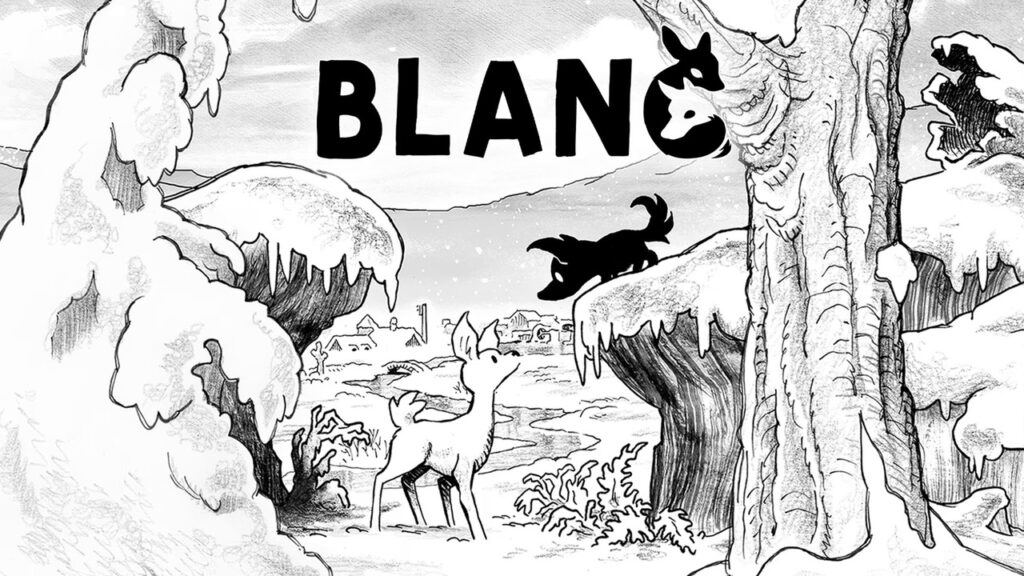
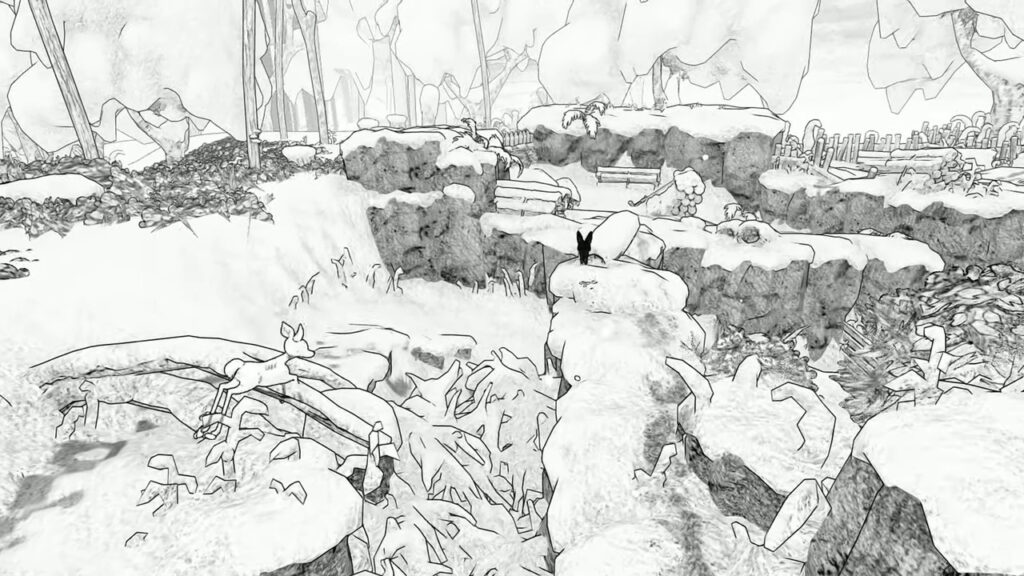
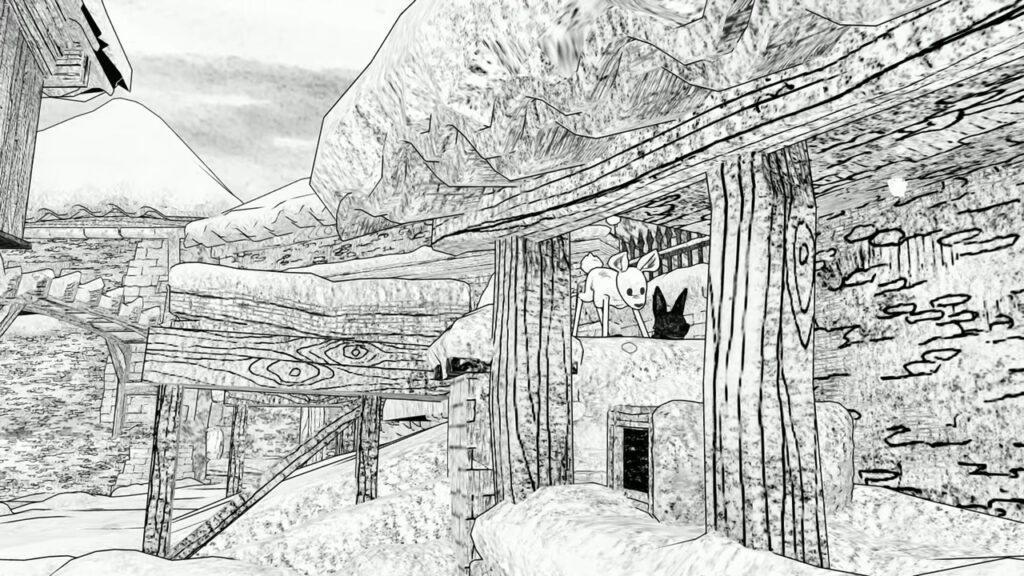
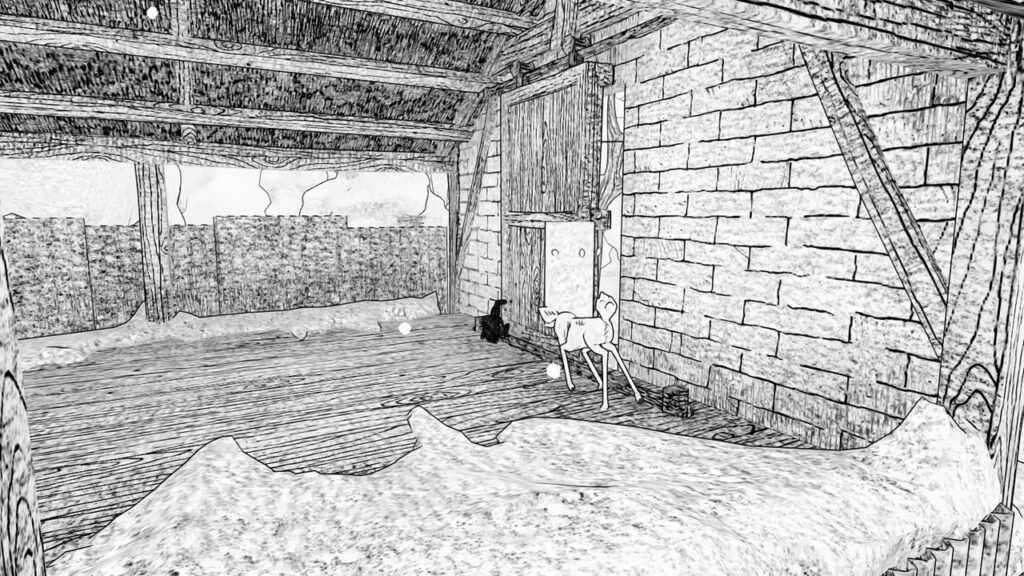
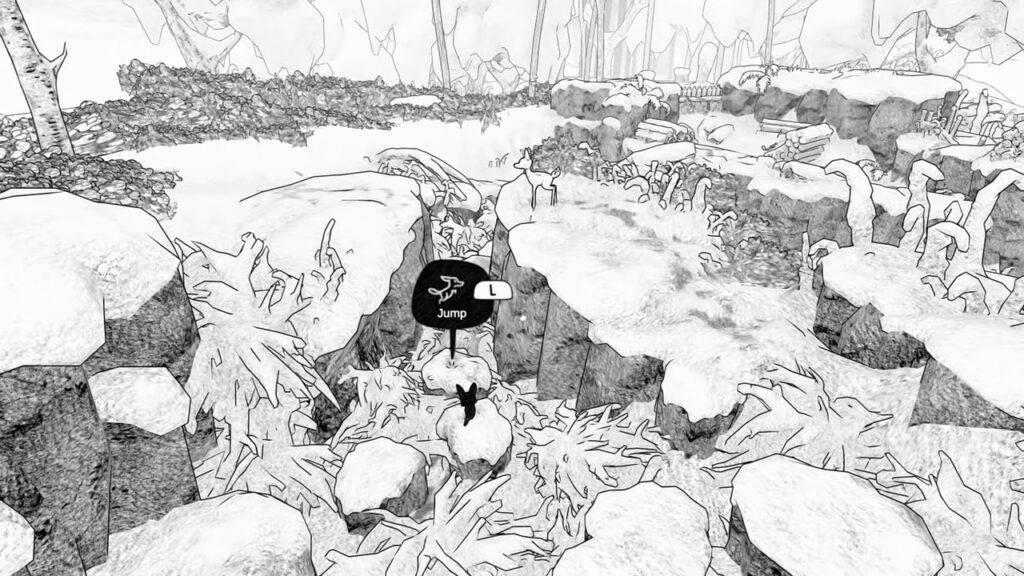




No Comments